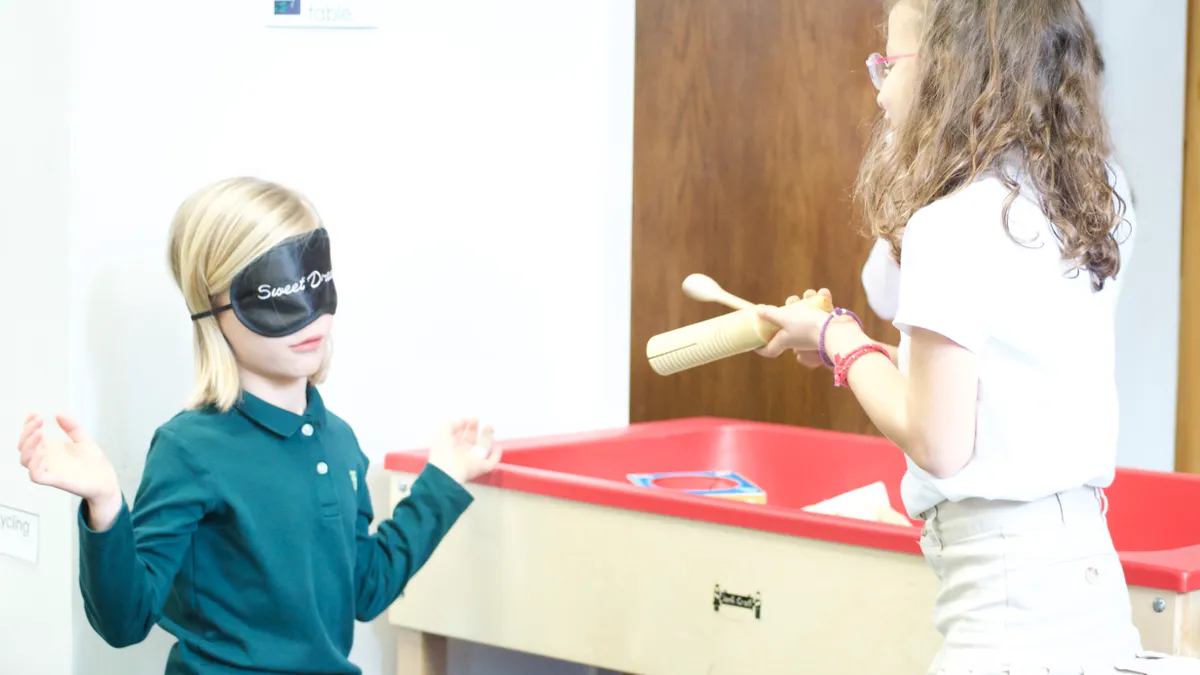Dive Brief:
- Play is making a comeback in the early grades, with kindergarten teachers in the Omaha Public Schools making time in their classrooms for activities, such as puppet shows and painting, and incorporating pretend cash registers, money and plastic food, the Omaha World-Herald reports.
- The Transforming Kindergarten effort, teachers say, aims to bring some balance back to classrooms in the primary grades after strict accountability measures under No Child Left Behind shifted the attention toward more structured lesson plans and preparation for tests.
- The key, experts say, is incorporating literacy and math activities and general knowledge into students’ play. Kindergarten teachers are now giving students an hour of play, which includes observing and interacting with them, and the district also developed a guidebook to help them organize their classrooms.
Dive Insight:
Early learning experts often say that the primary way young children learn is through play. In recent years, however, advocates of what is often called a constructivist approach, in which children build on what they know to guide their own learning, have been at odds with those calling for more teacher-led instruction, readiness testing and expectations that all children are reading by the end of kindergarten. Educators in the early grades have often been caught in the middle, recognizing the benefits of giving students more choice in the classroom but also feeling the pressure to close achievement gaps and meet academic growth targets.
With advances in research on learning, however, those opposing views are beginning to meet in the middle. At last month’s National Association for the Education of Young Children conference, for example, researchers from New Jersey described a project in which K-3 teachers are creating curriculum that challenges students, responds to their individual differences and helps them connect to content knowledge they already have.
“Why is play so important in early learning?” Joan Almon, co-founder of the Alliance for Childhood, wrote in a 2013 article. “Play has been likened to the inquiry-based approach of a scientist because both engage in ‘what if’ thinking. The child is continually trying out new possibilities and learns as much from failure and mistakes as from positive outcomes.”














